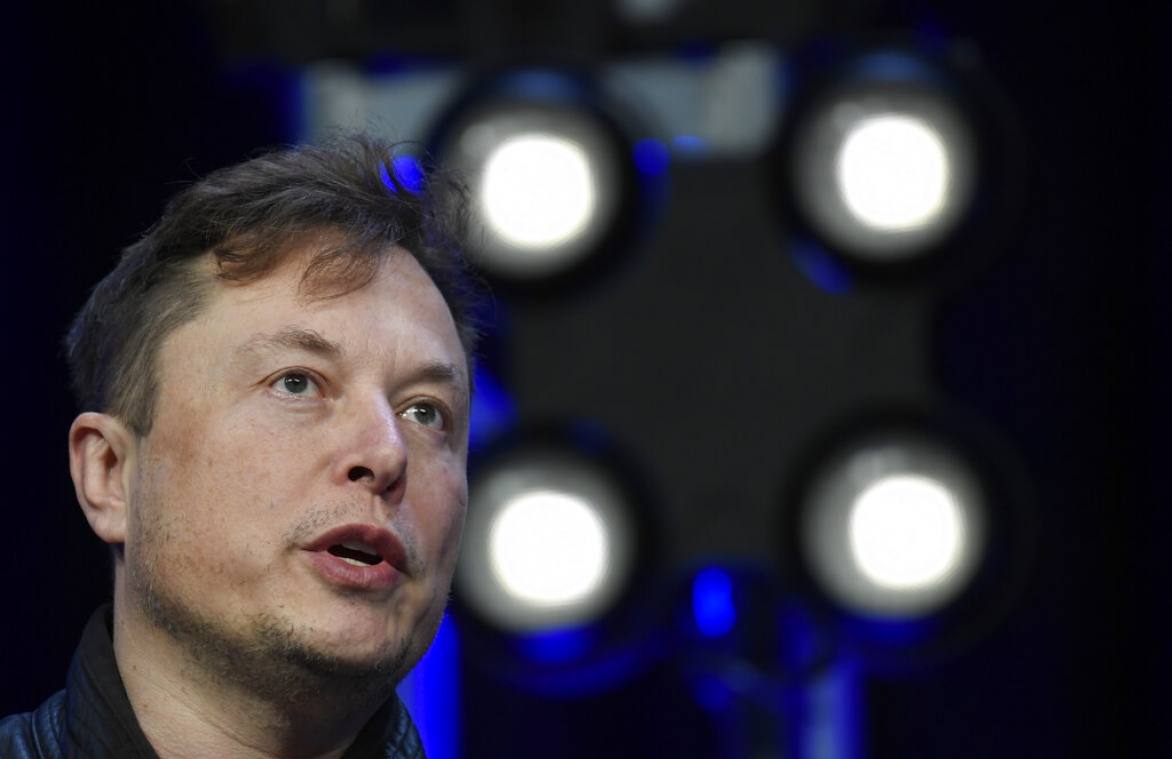By TOM KRISHER, AP Auto Writer
DETROIT (AP) — A federal judge in California has rejected a request from shareholders in a lawsuit to force Elon Musk stop talking about his 2018 tweets in which he said he had the funding to make Tesla a private company.
The ruling by U.S. District Judge Edward Chen April 20 came just hours after the Tesla CEO’s lawyer filed a document in the case saying that a gag order would trample on Musk’s free-speech rights.
Lawyers for the shareholders have argued that Musk is trying to influence potential jurors before the lawsuit comes to trial on Jan. 17, 2023. The lawsuit contends that the CEO’s August 2018 tweets were written to manipulate Tesla’s stock price, costing shareholders money.
Chen confirmed in an order April 20 that he had ruled that Musk’s 2018 tweets about having the money to take Tesla private at $420 per share were false. But he wrote that one of the shareholders who pursued the gag order in the class-action lawsuit failed to prove his case.
Chen wrote that the trial has been rescheduled for early next year, and that publicity during or just before a trial is a larger concern. He also wrote that the jury would be drawn from a large metro area, and that Musk’s comments were consistent with public positions in a related court case.
Lawyers for the plaintiffs also argued that Musk violated an October 2018 court settlement with U.S. securities regulators. Musk signed the agreement to pay a $20 million fine and not make any statements denying the securities fraud allegations. Musk is challenging the agreement, saying it is unconstitutional.
The ruling comes about a week after Musk, the world’s richest person, made a controversial offer to take over Twitter and turn it into a private company with a $43 billion offer that equals $54.20 per share. Twitter’s board on April 15 adopted a “poison pill” strategy that would make it prohibitively expensive for Musk to buy the shares.
At issue is Musk’s April 14 interview at the TED 2022 conference, where he said that he had funding secured to take Tesla private in 2018. He called the Securities and Exchange Commission a profane name and said he only settled the case because bankers told him they would stop providing capital if he didn’t, and the Austin, Texas-based Tesla would have gone bankrupt.
Lawyers for the shareholders say Musk’s comments in the interview were an “unsubtle attempt to absolve himself in the court of public opinion” over misrepresentations made with his Aug. 7, 2018, tweets.
But Musk attorney Alex Spiro wrote in his response that the shareholders didn’t show that Musk’s speech presented a “clear and discernable danger” that the whole community would be corrupted by pretrial publicity, or that finding 12 objective jurors would be impossible.
His motion says that Musk is in the middle of a public offer to take over Twitter, which has led to debate over censorship. Reporters, he wrote, have compared this to Musk’s previous statements about taking Tesla private.
During the TED interview, Musk was asked if funding was secured for the Twitter deal, a reference to the 2018 Tesla tweets. “Mr. Musk should be permitted to respond meaningfully and truthfully to inquiries such as this, and not be compelled to remain silent,” Spiro wrote.
If Musk violated the SEC agreement, the agency can ask a judge to scrap it and restore the securities fraud complaint. The SEC wouldn’t comment.
The Free Speech Center newsletter offers a digest of First Amendment and news media-related news every other week. Subscribe for free here: https://bit.ly/3kG9uiJ

